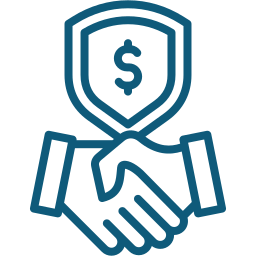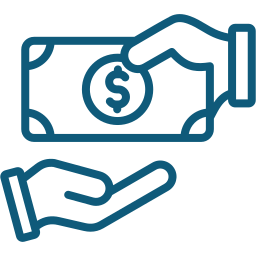We are processing your application, please wait for a moment.
![]() We Use 2048-bit SSL Technology to encrypt your data
We Use 2048-bit SSL Technology to encrypt your data








Quick Online Process
Only takes minutes

Fast Online Decision
Receive a decision in minutes

Same-Day Deposit
Up to $5,000 in your account in 24 hours*
Home | FAQs | Terms of Use | Rates & Fees | Disclaimer | Privacy Policy | Lending Policy | Contact
Fast Cash: Quick Money Loans for Financial Emergencies
Fast cash loans, also known as payday loans or cash advance loans, are short-term, high-interest financial products designed for quick access to funds. These loans typically range from $100 to $1,000 and are intended to cover unexpected expenses or financial emergencies. The application process is straightforward, requiring personal and financial information along with proof of income.
If approved, borrowers usually receive funds within one to two days. Repayment is typically due on the borrower’s next payday, including the principal amount plus interest and fees. If unable to repay in full, borrowers may have the option to extend the loan for an additional fee, potentially leading to a cycle of debt.
Fast cash loans are characterized by high interest rates and fees, making them an expensive form of borrowing. While they can provide immediate financial relief, borrowers should carefully consider the costs and risks associated with these loans before applying. It is crucial to only borrow what can be affordably repaid to avoid potential financial difficulties.
Despite criticism for their high costs, fast cash loans can serve as a financial option for individuals facing emergencies when other alternatives are unavailable. However, borrowers should exercise caution and thoroughly evaluate their ability to repay before entering into such agreements.
Key Takeaways
- Fast cash loans are short-term loans that provide quick access to money, typically with a high interest rate.
- The benefits of cash advance loans include quick access to funds, but drawbacks include high interest rates and potential for debt trap.
- To qualify for a personal loan for financial emergencies, you may need a good credit score, stable income, and a low debt-to-income ratio.
- Online loans offer convenience and quick approval, but they may come with higher interest rates and potential for scams.
- Before applying for a payday loan, it’s important to understand the high interest rates, short repayment terms, and potential for debt cycle.
- Payday loans and payday advance loans are similar, but the latter may allow for a longer repayment period and higher loan amounts.
- Responsible borrowing and repayment of quick money loans involve understanding the terms, budgeting for repayment, and avoiding borrowing more than you can afford to repay.
The Benefits and Drawbacks of Cash Advance Loans
Cash advance loans can be a helpful resource for individuals who find themselves in need of immediate funds to cover unexpected expenses. One of the main benefits of these types of loans is their accessibility and speed. Unlike traditional bank loans, which can take weeks to process, cash advance loans can often be approved and funded within a matter of hours.
This makes them an attractive option for those who need money quickly. Another benefit of cash advance loans is that they are relatively easy to qualify for. Most lenders do not require a credit check, so individuals with poor credit or no credit history may still be eligible for a loan.
Additionally, the application process is typically straightforward and requires minimal documentation, making it convenient for borrowers. However, there are also drawbacks to consider when it comes to cash advance loans. One of the main concerns is the high cost of borrowing.
Cash advance loans often come with exorbitant interest rates and fees, which can make them an expensive form of credit. This can lead to a cycle of debt for borrowers who are unable to repay the loan in full by their next payday. Another drawback is the potential for predatory lending practices.
Some lenders may take advantage of borrowers in desperate situations by offering loans with unfair terms and conditions. It’s important for borrowers to carefully review the terms of the loan and ensure they understand all costs and fees before agreeing to borrow money.
How to Qualify for a Personal Loan for Financial Emergencies
When facing a financial emergency, obtaining a personal loan can be a viable solution to cover unexpected expenses. To qualify for a personal loan, there are several factors that lenders typically consider. One of the most important factors is the borrower’s credit history.
Lenders will review an individual’s credit score to assess their creditworthiness and determine the risk of lending money to them. A higher credit score generally increases the likelihood of being approved for a personal loan and may also result in more favorable terms and lower interest rates. In addition to credit history, lenders will also consider the borrower’s income and employment status.
A steady source of income is important as it demonstrates the ability to repay the loan. Lenders may require proof of income, such as pay stubs or bank statements, to verify the borrower’s financial stability. Employment history is also taken into account, as a stable job can indicate a lower risk for the lender.
Furthermore, lenders may also evaluate the borrower’s debt-to-income ratio, which compares the amount of debt a person has to their income. A lower debt-to-income ratio suggests that the borrower has more disposable income available to repay a new loan, making them a more attractive candidate for lending. It’s important for individuals seeking a personal loan for financial emergencies to be aware of these factors and take steps to improve their creditworthiness before applying for a loan.
The Convenience of Online Loans: Pros and Cons
| Pros | Cons |
|---|---|
| Convenient application process | High interest rates |
| Quick approval and funding | Potential for predatory lending |
| Accessible to people with poor credit | Hidden fees and charges |
| Flexible repayment options | Risk of identity theft and fraud |
Online loans have become increasingly popular due to their convenience and accessibility. One of the main advantages of online loans is the ease of application. Borrowers can apply for a loan from the comfort of their own home, without the need to visit a physical branch or meet with a lender in person.
This can save time and hassle, making it a convenient option for those with busy schedules or limited mobility. Another benefit of online loans is the speed at which funds can be accessed. Many online lenders offer quick approval and funding processes, allowing borrowers to receive the money they need in a timely manner.
This can be especially beneficial in emergency situations where immediate access to funds is crucial. However, there are also potential drawbacks to consider when it comes to online loans. One concern is the prevalence of predatory online lenders who may take advantage of vulnerable borrowers.
It’s important for individuals to research and carefully vet online lenders before applying for a loan to ensure they are reputable and trustworthy. Additionally, online loans may come with higher interest rates and fees compared to traditional bank loans. Borrowers should carefully review the terms and conditions of any online loan offer to understand all costs associated with borrowing money.
It’s important to weigh the convenience of online loans against the potential costs and risks before making a decision.
What to Know Before Applying for a Payday Loan
Payday loans are a type of fast cash loan that is designed to provide immediate funds to borrowers who need money before their next paycheck. Before applying for a payday loan, it’s important for individuals to understand how these loans work and what to expect. One key consideration is the high cost associated with payday loans.
These loans often come with exorbitant interest rates and fees, making them an expensive form of borrowing. Another important factor to consider is the short repayment term of payday loans. Borrowers are typically required to repay the loan in full, plus interest and fees, by their next payday.
This can be challenging for individuals who are already struggling financially, as it may lead to a cycle of debt if they are unable to repay the loan on time. It’s also important for borrowers to be aware of their rights and protections when it comes to payday loans. Regulations governing payday lending vary by state, so it’s essential to understand the laws in your area before applying for a loan.
Additionally, borrowers should carefully review the terms and conditions of any payday loan offer and ensure they understand all costs and fees associated with borrowing money.
The Difference Between Payday Loans and Payday Advance Loans
While payday loans and payday advance loans are often used interchangeably, there are some key differences between these two types of fast cash loans. Payday loans are typically small-dollar loans that are repaid in full by the borrower’s next payday. These loans often come with high interest rates and fees, making them an expensive form of borrowing.
On the other hand, payday advance loans may offer more flexibility in repayment terms. Some lenders may allow borrowers to repay the loan over multiple pay periods, rather than requiring full repayment by the next payday. This can make payday advance loans a more manageable option for individuals who need more time to repay the loan.
Another difference between payday loans and payday advance loans is the application process. Payday advance loans may require more documentation and financial information from the borrower compared to traditional payday loans. This can make it more challenging for some individuals to qualify for a payday advance loan, but it may also result in more favorable terms and lower interest rates.
It’s important for borrowers to carefully consider their options and understand the differences between payday loans and payday advance loans before applying for fast cash funding.
Tips for Responsible Borrowing and Repayment of Quick Money Loans
When considering fast cash loans for financial emergencies, it’s important for borrowers to approach borrowing responsibly and prioritize repayment. One key tip for responsible borrowing is to only borrow what you can afford to repay. It’s essential to carefully assess your financial situation and determine how much you can realistically afford to borrow without putting yourself at risk of further financial hardship.
Another important tip is to carefully review the terms and conditions of any loan offer before agreeing to borrow money. This includes understanding all costs and fees associated with the loan, as well as repayment terms and potential consequences for late or missed payments. Additionally, it’s crucial for borrowers to prioritize repayment of fast cash loans once they have been funded.
Making timely payments can help avoid additional fees and interest charges, as well as protect your credit score from negative impacts. If you find yourself struggling to repay a fast cash loan, it’s important to reach out to your lender as soon as possible to discuss potential options for repayment assistance or restructuring. Ignoring the problem will only make it worse, so proactive communication with your lender is key.
Overall, responsible borrowing and repayment practices are essential when it comes to fast cash loans. By carefully considering your options, understanding the terms of any loan offer, and prioritizing repayment, you can navigate financial emergencies while minimizing potential risks and consequences associated with borrowing money.
